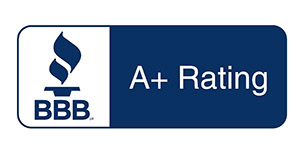Should a business allow staff to connect, and use, personal devices on the office network? The idea of BYOD, or bring your own device, has become more popular in recent years. However, there is added risk if fundamental services, such as email and file sharing, are not configured and managed properly. A business’s primary concern should always be to protect its data when searching for cost saving trends. One of the leading justifications for BYOD is that it moderates hardware procurement and monthly service expense. A business may financially benefit from implementing a BYOD policy, but, before adoption, it is important to evaluate the advantages and apprehensions with a Sea to Sky technical team member.
Advantages:
At first, there seems to be very little argument against transferring financial risk from the business to the individual. Businesses do not have to worry about lost/stolen/broken hardware device replacement fees, managing monthly billing, including notorious overage charges, or device upgrade fees. It frees up extra cash for the business, which can be used for other growth strategies. As a point of interest, we find that most employees are willing to pay for their own service fees if it means they get to choose the device and carrier they want.
Generally, businesses who adopt this policy find that users purchase the latest technology, which provides a competitive advantage in speed, functionality and connectivity. Specifically, we have found that users who own their devices upgrade or update their personal hardware more frequently than a business.
Apprehensions:
On the other hand, there are issues related to BYOD that should be addressed before the topic is ever brought up within an organization. BYOD adoption disassociates the IT department with what happens to a user’s device. More importantly, the business becomes less able to control what hardware joins its network. As a result, some hardware/software configurations may generate security concerns that can cost more in the long-run.
BYOD policies must outline, in detail, what is and is not acceptable in an office environment. An accepted use policy should be drafted, presented and signed by the staff before foreign devices start joining the network. This policy should involve the HR department, the IT department and the executive team to make sure all technical and legal angles are covered. It is important for an organization’s staff to acknowledge they understand the rules surrounding personal devices at work.
From an IT perspective, a BYOD policy must discuss company data storage and data ownership expectations. We have found that BYOD-type trends make it much harder for an organization to retrieve their data after an employee is let go. The reason for this is that the employee is not required to surrender their devices after they leave. Sea to Sky can implement solutions that help an organization retain more ownership of their data with BYOD considered. We can help segregate data from a staff member’s personal device with, or without a server; ask us for details!
Conclusion:
Personal devices will continue to make their way into the business environment with or without formal approval. This can be a very dangerous prospect for a business, but Sea to Sky Network Solutions can help build a master plan to manage IT systems with BYOD in mind. Use discretion before making the decision to an IT trend such as BYOD.
Sea to Sky Network Solutions is an IT service provider, based in Vancouver, focused on helping businesses make the right IT decisions. Each business has unique needs and requirements as they relate to cost, security and data ownership. Our team can help you create an IT plan for today and tomorrow. Contact a Sea to Sky team member for more information.



